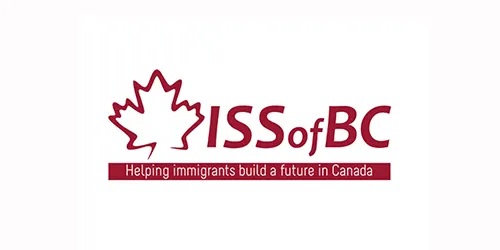
Caregivers can have their immigration status revoked if they bring a complaint against their employer.
As a caregiver, you have legal rights to fair working conditions and treatment under the law. Learn the steps to deal with any problems that come up at work.
What you should know
“I came from the Philippines to work as a caregiver. Within a few months, I was regularly working six days a week and many 12-hour days. I learned from other workers that these hours were more than the law here allows. I spoke with my employer. They agreed to give me full weekends off, and pay me overtime rates for extra hours. I’m so relieved.”
– Tala, Vancouver, BC

As a caregiver, you have legal rights to fair working conditions and fair treatment under BC’s main employment law. This law sets minimum standards for things like minimum wage, overtime pay, hours of work, and statutory holidays.
This law also has some special rules that apply to caregivers. The law refers to a caregiver as a “domestic,” defined as someone who’s hired to live and work in a private home to provide cooking, cleaning, child care, or other services.
Under BC’s employment law, caregivers must have a written employment contract. This is an agreement between you and your employer. The agreement sets out the terms of your work, including:
your duties as a caregiver
your hours of work
your wage
your charges for room and board (if any)
Upon hiring you, the employer must give you a copy of the employment contract. (Learn more of what to watch for on being hired in our page on if you’re coming to BC to work as a caregiver.)
Your employer may charge for room and board
The employer may charge for room and board, but if they do they must state that arrangement in the employment contract. And they can’t charge more than $325 per month. If you’re being charged more than that for room and board, contact the BC Employment Standards Branch.
Caregivers are entitled to be paid at least the general minimum wage in BC. As of June 1, 2024 the general minimum wage is $17.40 per hour.
Even if your contract sets a lower rate, your employer must pay you at least the minimum wage. If your contract promises you more than the minimum wage, you must receive that higher wage.
If you earn a monthly or annual salary
If your salary is paid yearly or monthly, your paycheck must amount to at least minimum wage for all hours worked. For example, a monthly salary of $3,000 for a 40-hour week works out to an hourly rate of $18.75 per hour. That’s greater than the general minimum wage as of June 1, 2024.
If your employer asks you to do extra work
If your employer asks you to babysit or perform other duties outside of the regular agreed-upon work hours, that’s extra. Your employer must pay for it. That includes overtime rates, if applicable.
If you work more hours than are set out in your employment contract, you must be paid for these extra hours.
You’re entitled to overtime rates if you work more than eight hours a day or 40 hours a week.
Daily overtime rates are as follows:
after you’ve worked eight hours in a day, you’re entitled to one-and-a-half times your regular wage for the next four hours worked
after working 12 hours in a day, you’re entitled to double your regular wage for any additional hours worked
If you work more than 40 hours in a week, you must receive one-and-a-half times your regular wage after 40 hours. Note that only the first eight hours you work each day is counted towards the weekly total. (Daily overtime is calculated separately.)
We offer more detail on hours of work and working overtime.
Unless there’s an emergency, caregivers must have at least eight hours free from work between shifts. And they must have at least 32 consecutive hours free from work each week.
Caregivers may be required to work a split shift. This is when you work a few hours, have an unpaid break, and then return to work on that same day. However, the split shift must end no later than 12 hours after it starts.
Statutory holidays
Statutory holidays are days when eligible workers receive the day off with pay. There are 11 “stat” holidays in the year.
To qualify for the day off with pay on a statutory holiday, you must be employed for at least 30 calendar days, and have worked 15 of the 30 days, before the statutory holiday. For more details, see our guidance on working on a statutory holiday.
Vacation and vacation pay
After you’ve worked at your job for one consecutive year, you’re entitled to at least two weeks of annual vacation. After working five consecutive years, you’re entitled to at least three weeks of annual vacation.
Most workers in BC are entitled to vacation pay. This is an extra percentage of a worker’s earnings, to provide them with pay while absent during vacation. After five days of work, your employer must pay you vacation pay of at least 4% of your gross earnings. After five years of work, you’re entitled to at least 6% of your gross earnings.
For more details, see our information on rights to vacation and vacation pay.
Leaves
Caregivers are entitled to unpaid leaves of absence for any of the following reasons: pregnancy, parental leave, illness or injury, family responsibility, compassionate care, bereavement, and jury duty. See our information on leaves from work.
Your employer has the right to fire you if you do something seriously wrong. This is called being fired for just cause. For example, your employer might have just cause to fire you if you’re dishonest about something important, or you steal from your employer.
If you’ve done nothing wrong, your employer can still fire you. But then they must give you notice of termination. There are two ways this can be done:
Your employer can warn you in advance that they plan to let you go. This advance warning is called the notice period.
They can let you go right away. But then they have to pay you what you would have earned during the notice period. This money is called severance pay.
There’s a minimum amount of notice (or severance pay) your employer must give you, depending on how long you’ve been in the job. For example, if you’ve worked at least three months, you’re owed at least one week’s notice (or pay). If you’ve worked for a year or more, you’re owed at least two weeks.
Depending on the circumstances, and on what your employment contract says, you may be entitled to more than the minimum. See our information on if you are fired for more details.
If you’re a foreign national working as a caregiver in Canada on an employer-specific work permit and you want to change jobs, you need to apply for a new work permit under the Temporary Foreign Worker Program. See our guidance on working in BC temporarily.
You have no legal obligation to tell your employer ahead of time if you quit your job. But it’s courteous to tell them you’re planning to leave, so someone else can be found to replace you.
Ask your employer for your records before you leave a job
Before you leave your job, make sure to get these documents from your employer: a record of any overtime hours you worked, and a record of employment (ROE).
Work out the problem
If you have a problem at work, try to talk with your employer, if you can. Write down what your employer has done that you’re unhappy about — that will help you remember everything you want to say. Think about what you want your employer to do about it.
For guidance, see our tips on talking with your employer.
Share your concerns with someone you trust
It’s a good idea to talk with someone you trust about any problems on the job. This might be a family member, friend or co-worker. You may want their support if you decide to make a formal complaint to a government agency.
Contact an agency that helps workers or newcomers. The Migrant Workers Centre is a non-profit organization that provides legal information and advice to migrant workers, including caregivers. See the “Who can help” section below for contact details, as well as suggestions of other agencies that can help.
If you aren’t able to resolve a work problem with your employer, you can make a complaint to the Employment Standards Branch. This is the government office that enforces the main law in BC protecting workers.
You have six months to file a complaint from the time the problem took place or your employment ended.
You can submit your complaint by using an online form, mailing in a complaint form, or going to a Branch office. For details, see our page on filing a complaint with the Employment Standards Branch.
Filing a complaint will not affect your immigration status.
Common questions
As explained above, if you work more hours than are set out in your employment contract, you must be paid for these extra hours. As well, you’re entitled to overtime rates if you work more than a certain number of hours in a day or week.
As a first step, you can try raising the issue with your employer. Either speak with them in person, or send an email or letter explaining the situation. Make it clear that you’re asking to be paid for the extra hours you’ve worked. For guidance, see our tips on talking with your employer.
If that’s not successful, you can file a complaint with the Employment Standards Branch. See our page on filing a complaint with the Branch.
Keep a record of your overtime hours
The Employment Standards Branch will ask you for evidence of your overtime hours. It’s a good idea to always keep a record of the hours you’re working, including overtime. This can serve as proof, and help establish your claim.
No, not if it was an accident. An employer can’t deduct money from wages to recover a cost of doing business. This includes accidental damage to the employer's property.
Yes, but you will likely need a temporary resident visa (TRV) to re-enter the country. You should apply for a TRV from within Canada before you travel. Foreign workers from visa-exempt countries don’t need a TRV to return to Canada. However, they may need an electronic travel authorization (eTA) which can be completed online.
The length of vacation time your employer gives you should be written in your contract. Make sure you don’t take longer than your contract allows. Otherwise you could lose your job.
Apply in advance
Since TRVs can take a while to process, you should apply at least two months before your departure date.
Who can help

Immigrant Services Society of BC
Provides settlement and employment services to new immigrants.

MOSAIC
A non-profit providing free settlement services to new immigrants.

S.U.C.C.E.S.S.
An organization that delivers settlement services to immigrants in BC, including integration and mentoring programs, legal clinics, pre-departure workshops and more.

Fuerza Migrante
A non-profit organization of migrant workers and volunteers that promotes migrant workers’ rights in Canada and abroad.

Migrant Worker's Centre
A non-profit organization that provides legal information, advice and full representation to migrant workers in BC.

Access Pro Bono's Free Legal Advice
Volunteer lawyers provide 30 minutes of free legal advice to people with low or modest income.

Access Pro Bono’s Everyone Legal Clinic
Clinicians provide affordable fixed-fee services on a range of everyday legal problems.

Lawyer Referral Service
Helps you connect with a lawyer for a complimentary 15-minute consult to see if you want to hire them.

BC Legal Directory
Search for a lawyer by community or legal issue. From the Canadian Bar Association, BC Branch.

